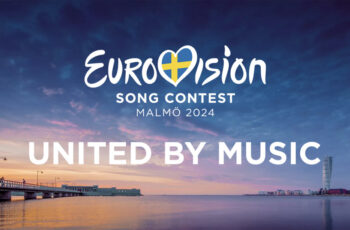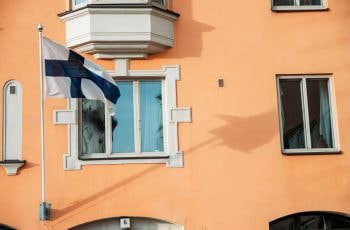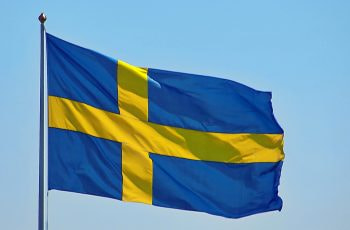Global Gaming Suspension Upheld in Sweden
The Administrative Court of Appeal in Jönköping, Sweden, has decided to uphold the decision made by Spelinspektionen to revoke the license of Global Gaming. Spelinspektionen, which is the gambling regulator in Sweden, initially made the decision to revoke the operator’s betting and gaming license in June 2019 due to significant deficiencies that it unearthed with the business practices of Global Gaming. Some of these deficiencies related to responsibility and anti-money laundering measures implemented by the company.

The decision of the court to uphold the decision of the regulator to revoke Global Gaming’s license could set an important precedent for licensing in Sweden. Other operators in the country will now be expected to pay close attention to player protection if they wish to retain the ability to operate in the country. ©12019/Pixabay
This is not the first time that the matter has been legally challenged by the operator. Global Gaming has previously brought the issue to the Administrative Court in Linköping, but then as now, the appeal was also rejected and thrown out by the court.
In January of 2020, the operator’s hopes of conducting business in Sweden would have received a huge boost as the decision was made to allow Global Gaming to bring the grievance back to the courts; this time at the Administrative Court of Jönköping. These hopes proved to be for nothing, however, as this court also ruled against the operator and upheld the decision of Spelinspektionen.
The Court’s Ruling
During the legal proceedings that took place at the court, the adjudicators considered the evidence that was brought to it by Spelinspektionen very carefully. In the information that was collected by the regulator, it was noted that the operator had violated a number of provisions that relate to liability in gambling and the duty of care that Global Gaming was expected to fulfill for its customers.
The court decided, upon seeing the evidence, that these transgressions suggested that the company was not adequately observing the customer protection laws that are set out in the licensing agreements for operators in the market. In addition, it was also decided that Global Gaming was especially failing its customers that were exhibiting signs of problem gambling and was not providing enough protection for this vulnerable group.
In defense of itself, the operator made the argument that most of the violations that were brought to the court had been taken from a short time period. According to Global Gaming, it had put extensive measures in place to make its responsible gambling policies better and to improve its anti-money laundering processes after the decision was initially made by Spelinspektionen.
Despite these arguments, the court ultimately felt that this was, overall, too little too late. The court ruled that the transgressions of Global Gaming were too severe to justify a warning in this context. To make this point, the adjudicator drew attention to the failures of the operator in regard to deposit limits, contacting customers, and offering bonuses. Additionally, the court still found deficiencies in the operator’s anti-money laundering practices.
The councilor who was in charge of the proceedings, Anders Poulsen, spoke on the decision that was reached by the court. He stated that the court had to reach a balance between the circumstances of the case that were both for and against revoking Global Gaming’s license. The court decided that based on the balance, it was not sufficient punishment to just warn the operator.
Ultimately, this decision means that the initial decision that was made by the country’s gambling regulator to revoke the license stands, and the terms will not be changed at all. This decision could still be challenged, however, as Global Gaming could seek to get the matter into the Supreme Administrative Court of Sweden.
Reaction to the Decision
With regard to the reaction of the parties involved, it is unsurprising that Spelinspektionen welcomed the decision that was reached in the court in Jönköping. This decision gives more credibility to the decisions made by the regulator about issues such as these.
Spelinspektionen noted that the ability for a regulator to suspend the licenses of the businesses that it permits to operate in the gambling market is a vital part of implementing a strong regulatory system in any country. Should this matter now be put to bed, a precedent has been set that will allow Spelinspektionen to revoke or suspend licenses should they fail to uphold the licensing agreement.
Spelinspektionen released a statement about the ruling in which it touched on the decision-making process of the court. Those presiding over the matter decided that several regulations were breached by SafeEnt about liability in the regulated market. Ultimately, this meant that the organization was not showing care to its vulnerable customers, and so it was right that its license was rescinded.
The regulator has reiterated that this should serve as a warning to the other licensed operators in Sweden and that they should now pay close attention to the licensing agreements they signed.
Spelinspektionen has reminded other licensed operators that they should make sure to follow these rules, particularly the rules about player protection.
Spelinspektionen hopes that this will help to create a safe and healthy gambling culture and market in Sweden. In this respect, it is, therefore, essential that the entities that are not prepared to play by the rules and respect the decisions should be removed from the market. This will not only protect gamblers, on the whole, but it will also prove a useful tool to ensure that problem gamblers receive the help they require.
Next Steps for Global Gaming
The suspension of its license forced Global Gaming to explore other avenues in the Swedish market. This saw the operator launch its new Nano Casino brand in the country. This was achieved via a white label agreement it made with the Finnplay Group. The operator then went on to sell the rights for Nano Casino to Finnplay in July after it stopped offering white label operations.
In addition to this, the operator also suffered further setbacks after the failure of the planned relaunch of its flagship brand. Back in February, it was announced that Spelinspektionen had rejected Global Gaming’s application to bring Ninja Casino back. In this rejection, it criticized the subsidiary of Finnplay, Viral, for a very inappropriate collaboration with Global Gaming.
It seems that more change is on the horizon for Global Gaming, however. In September, it was announced that the Baltic-facing igaming operator Enlabs had submitted an offer to take over Global’s operations and brand. The offer was for SEK150 million (equivalent to $16.6 million), and the recommendation of the operator’s board members was for all shareholders to accept this offer.
When justifying its decision to attempt the takeover, Enlabs stated that the operator had made great strides in developing its standing in Finland. This is a region that Enlabs is looking to expand into. In addition to this, Global Gaming also has a presence in Estonia, a region that Enlabs dominates for the most part. This takeover will allow the operator to further consolidate this position and to continue to expand in the Baltic regions.
Overall, this case has strengthened the position of Spelinspektionen, which will allow it to better fulfill its vision of a fairer and safer gambling market that is free from corruption. The regulator has been making strides recently with its controversial decision to outlaw betting on rule violations in sports matches (particularly football) in an attempt to stamp out match-fixing.
Specifically, on the topic of player protection and anti-money laundering processes, the regulator has previously found that many of the licensees were severely lacking. This ruling from the court could now provide these license holders with the push they need to modernize their safeguarding and anti-money laundering procedures.



